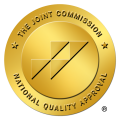How Teaching Humility Increases the Impact of Your Treatment
Getting over an addiction isn’t just about detoxing and coming up with hobbies that will keep you from drinking. It is about a change in attitude, and humility plays a huge role in the changes you must make. This article will define humility and provide you with an understanding of why it is so critical in helping you move past issues of dependency.
Article Contents
What is Humility?
Humility is a modest view of one’s importance. It helps to counter the arrogance that comes with alcoholism.
Arrogance in Addiction
It is not uncommon for someone struggling with addiction to take on an arrogant attitude. These individuals may think that they know better than everyone else and that nothing will happen to them regardless of the substances they abuse or how often they are using.
This attitude is often born out of someone’s denial of a substance use disorder. Deep down, someone may know how dangerous their behavior is and how much it hurts those who love them. However, they often use arrogance as a shield to protect them from feelings. Once those struggling with substance abuse lower a notch, they may realize that they have an issue. At this time, they may be in a better place to handle their struggles.
Humility and the 12-Step Program
Humility is a big part of the 12- step program that is the foundation of Alcoholics Anonymous. Many other peer support groups adapt the 12-step program as a guide to a life of sobriety and fulfillment.1
What is the 12-Step Program?
The 12-steps are principles that were developed by Alcoholics Anonymous to help people struggling with addiction change their beliefs and mindset. These guidelines are meant to encourage those dealing with substance use disorder to be accountable, and the program provides support during dark times. Many of the steps are spiritual or religious.2
How Does Humility Relate to the 12-Step Program?
Humbleness plays a significant role in the 12-step program. It is specific to step seven which “Humbly [asks] [a higher power] to remove our shortcomings”. It requires admitting you have faults and asking a higher power to assist you in getting rid of them. This step also prevents the individual from minimizing the effects of the harm they have caused in their mind.ii
The Benefits of Humility in Recovery

It is necessary to embrace humbleness as a part of recovery. Here are some of the benefits that humility can provide.
Humility and Assertiveness
Humbleness goes hand in hand with assertiveness. It is necessary to recognize a need for others to be heard.
Assertiveness is the act of being confident and self-assured, but it should not be confused with arrogance. It can help people stick up for themselves and say no to drugs and alcohol when tempted.
Humility and Spirituality
Alcoholics Anonymous’s 12-step program is largely based on spirituality and the Bible. If you read the Bible, you will learn much about humility. Embracing humility and spirituality helps individuals better adhere to the 12-step program in taking a secular path to recovery.
Humility: A Spiritual Aspect of Recovery
Spirituality is worked into recovery through the 12-step program. The program teaches members to turn to a power greater than themselves to move on from addiction. It asks members to take a moral inventory and to admit wrongdoings to God and others. The program asks individuals to make amends, seek forgiveness, and heal through prayer and meditation.
Admitting our wrongs and asking for forgiveness would not be possible without adopting a humble attitude.
Applying Humility for Healing
When it comes to moving past addiction, it is not enough to learn what humbleness is. It applies in everything one does.
How to Live with Humility
- Practice the 12 Steps: For those who practice 12-step programs, their attitude is meant to move away from arrogance and towards a humbler view of themselves and their actions.
- Avoid False Humility: Humility should not be an attitude that you take on for a day. It must become a part of you. Doing something kind for another person each day will teach humility and, eventually, it will become second nature.
- Recite the Litany of Humility:The Litany of Humility is a Catholic prayer that asks for the penitent to be granted humility. It recites with repeated responses. If someone practices spirituality and includes the Litany of Humility in their daily prayers, it will better familiarize them with the concept of forgiveness on behalf of themselves and others.
- Strive for Cultural Humility:Cultural humility is a lifelong process of self-reflection where a person learns about other cultures and their own beliefs. It allows an individual to achieve a higher state of awareness and develop increased empathy towards others.
Other Types of Help for Addiction Recovery
If you follow the Alcoholics Anonymous program, you will learn humility and develop an attitude that prepares you for sober living. However, this is not your only option for recovery. Some individuals do not prefer the religious aspect of AA and seek out alternative recovery methods that can instill humility in their lives.
Therapy
There are various types of addiction therapies available. In general, therapy attempts to find the root of what causes addiction and replace negative behaviors with healthy coping mechanisms.3
Inpatient/Outpatient Treatment
Someone may choose to check themselves into a rehab center to detox and attend therapy groups under 24/7 supervision. Once they complete treatment, they may continue with outpatient rehabilitation that prepares them for sober living.
Sober Living Facilities
After leaving rehab, a patient may choose to stay in a sober living facility. This living situation will help them transition to life on their own while minimizing the chances of relapse.
Peer Support Groups
Peer support groups are regular meetings between people who have experienced mental illness. Usually, a trained specialist or facilitator oversees the group and encourages members to discuss their feelings, struggles, and experiences. Alcoholics Anonymous is a well-known type of peer support group, as well as Narcotics Anonymous. However, non-religious support groups also exist, such as SMART Recovery, LifeRing Secular Recovery, and Secular Organizations for Sobriety.
If you are dealing with addiction, Headlands can help. We offer comprehensive care that includes detox, therapies that focus on humility, and strategies for sober living. We follow through with outpatient care that gets you ready for the outside world.
Do not let drugs or alcohol rule your life. Headlands’ programs can help you move forward with a new attitude and a cleaner way of living. Call us today to take your first step towards sobriety.




